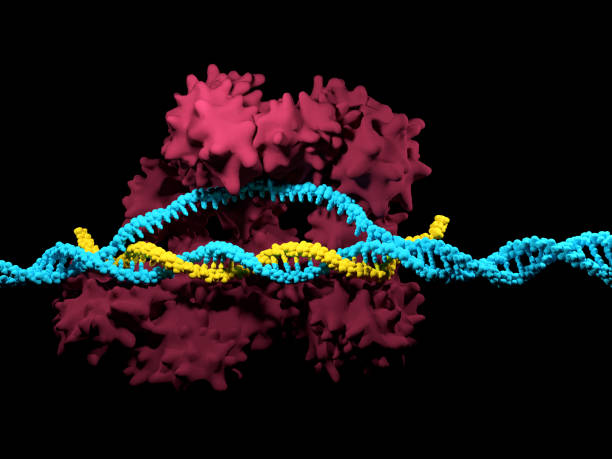There is something sacred about the early hours of the day. The sky slowly changes colors, the world seems quieter, and life begins again in a way that feels both familiar and fresh. Morning is more than just a passage of time—it is a psychological and physiological reset button. What we choose to do in those first waking moments can ripple across the entire day, shaping how we think, feel, and behave. Morning rituals, whether as simple as sipping a glass of water or as structured as meditation, exercise, or journaling, have profound effects on our health and well-being.
Scientists have long studied how morning habits influence the body and mind. Psychology, neuroscience, and medicine converge on one truth: our mornings matter. A chaotic, rushed, or mindless morning can breed stress, fatigue, and poor decision-making. A calm, intentional, and nourishing morning can energize us, sharpen our minds, and align our bodies with rhythms that optimize health.
The question is not just what morning rituals are, but why they are so powerful. To understand this, we must explore how mornings interact with biology, psychology, and behavior.
The Science of Circadian Rhythms
At the heart of morning rituals lies our internal clock—what scientists call the circadian rhythm. This 24-hour cycle governs sleep, wakefulness, hormone release, body temperature, and countless other processes. The circadian rhythm is synchronized with light, which means morning sunlight is one of the most powerful regulators of human health.
Exposure to natural light in the early hours tells the brain it is time to wake. Light triggers the suppression of melatonin, the hormone that makes us sleepy, and increases cortisol, which provides alertness and energy. The timing of light exposure influences mood, metabolism, and even immune function. Research shows that people who get morning sunlight have better sleep quality, healthier body weight, and lower risk of depression.
Morning rituals that align with circadian biology—such as waking consistently, opening curtains, or stepping outside for sunlight—literally tune the body’s clock. This synchronization is like setting a metronome for the day: energy rises predictably, focus stabilizes, and sleep later at night becomes more restorative.
The Psychological Power of Beginnings
Mornings carry a unique psychological weight. Behavioral scientists call this the “fresh start effect”—the tendency for people to adopt new habits or goals at the beginning of a time cycle, such as a new year, a birthday, or the start of a week. The beginning of each day is a smaller version of this effect.
Morning rituals capitalize on this fresh start. They anchor intentions, provide structure, and create momentum. For example, starting the day with a mindful activity like journaling or meditation can prime the brain for focus and positivity. Similarly, exercising early increases the likelihood of making healthier food choices throughout the day.
Routines reduce cognitive load. Decision fatigue—the mental exhaustion that comes from making too many choices—is lessened when mornings follow a predictable rhythm. Rituals, unlike random habits, carry meaning. They are repeated actions imbued with intention, making them psychologically grounding. A person who lights a candle for quiet reflection, practices yoga, or drinks tea slowly is not just performing tasks but cultivating identity and stability.
Morning Hydration and Nutrition
One of the simplest yet most overlooked aspects of morning rituals is hydration. After 7–9 hours of sleep, the body is mildly dehydrated. Even slight dehydration impairs concentration, mood, and physical performance. Drinking water in the morning replenishes lost fluids, supports metabolism, and aids digestion.
Nutrition in the morning also plays a pivotal role. The debate over breakfast’s importance has shifted in recent years, with intermittent fasting gaining popularity. Yet, whether one eats immediately or a bit later, the first meal of the day influences blood sugar regulation, satiety, and cognitive function. A breakfast rich in protein and fiber stabilizes energy, while a high-sugar, processed breakfast can cause blood sugar spikes and crashes, setting the stage for fatigue and cravings.
The key is not rigid adherence to a universal rule, but mindful alignment with one’s body and goals. Some thrive on an early, nutrient-dense breakfast, while others prefer a fasting window. The ritual lies not in what is consumed, but in the conscious relationship to nourishment.
Movement and Morning Energy
Exercise in the morning has transformative effects on health. Physical activity boosts circulation, increases endorphins, and activates the brain’s reward system. Studies show that morning exercise improves adherence, meaning people are more likely to stick to a workout routine when it happens early, before distractions or fatigue interfere.
Morning movement does not need to be intense. Stretching, walking, yoga, or body-weight exercises can all stimulate the cardiovascular system and wake the body. Exercise in the early hours also enhances metabolic health by improving insulin sensitivity and promoting fat utilization. For those struggling with sleep, morning workouts have an added benefit—they shift circadian rhythms earlier, promoting earlier and deeper rest at night.
Mindfulness and Mental Clarity
In a world filled with noise, screens, and constant stimulation, mornings provide a rare opportunity for stillness. Mindfulness practices—such as meditation, breathing exercises, or gratitude journaling—quiet the mind and strengthen the prefrontal cortex, the area responsible for focus, decision-making, and self-regulation.
Research reveals that meditation reduces stress hormones, enhances emotional regulation, and improves immune function. Gratitude practices, when done regularly in the morning, shift attention away from anxiety and scarcity toward abundance and resilience. Writing down even a few things one is grateful for has been linked to greater optimism and lower stress.
These practices, though simple, are powerful because they set a psychological tone. A rushed morning often leads to a reactive mindset, where stressors dictate mood. A mindful morning, by contrast, cultivates a proactive mindset, where one chooses how to meet the day.
Technology and the Digital Morning
One of the greatest challenges of modern life is the omnipresence of screens. For many, mornings begin with scrolling through phones, checking emails, or reading news headlines. While this provides stimulation, it also triggers stress. Notifications pull attention in multiple directions, and negative news can create anxiety before the day even begins.
Morning rituals that limit screen exposure allow the brain to wake naturally, free from digital intrusion. Delaying phone use by even 30 minutes can significantly reduce stress and improve focus. Instead of reaching for devices, individuals who replace this habit with intentional rituals—such as journaling, movement, or quiet reflection—report higher productivity and better mental health.
Technology is not inherently harmful; it depends on how and when it is used. For example, using a guided meditation app, listening to uplifting podcasts, or tracking health goals digitally can enhance mornings when done intentionally. The key is not avoidance but mindful engagement.
Morning Rituals and Emotional Resilience
Life is unpredictable. Stress, challenges, and unexpected events inevitably arise. Morning rituals build resilience by creating a foundation of stability. When the day begins with grounding practices, individuals are better equipped to respond to stress without being overwhelmed.
This resilience has a biological basis. Rituals that include deep breathing, meditation, or gentle exercise activate the parasympathetic nervous system—the “rest and digest” branch that counterbalances stress responses. Over time, this lowers baseline cortisol levels and improves heart rate variability, both indicators of stress resilience.
Emotionally, rituals provide a sense of agency. Even when external circumstances are beyond control, mornings can be claimed as personal space. This sense of ownership empowers people to face difficulties with greater calm and confidence.
Cultural Perspectives on Morning Rituals
Morning rituals are not a modern invention. Across cultures and history, humans have recognized the sacredness of dawn. In many spiritual traditions, early hours are reserved for prayer, meditation, or connection with nature.
In India, Ayurveda prescribes dinacharya—a daily routine beginning before sunrise, including practices such as oil pulling, yoga, and meditation. In Japan, morning rituals often include tea ceremonies, blending mindfulness with simplicity. Indigenous cultures worldwide greet the morning sun with songs, offerings, or ceremonies of gratitude.
These traditions, though diverse, share a common understanding: the morning is not just practical time, but symbolic time. It is when the mind is most open, when intention carries the most weight, and when connection to self, community, and nature is strongest. Modern science increasingly validates what ancient wisdom has long taught—that morning practices profoundly shape health and well-being.
The Role of Consistency
The power of morning rituals does not come from occasional practice but from consistency. Habits shape biology through neuroplasticity—the brain’s ability to rewire itself. When rituals are repeated daily, neural pathways strengthen, making the behaviors automatic.
Consistency also builds psychological trust. When we keep promises to ourselves, even small ones like drinking water or stretching each morning, we strengthen self-discipline and self-respect. These seemingly minor actions compound into profound identity shifts: we begin to see ourselves as healthy, mindful, resilient people.
Importantly, consistency does not require perfection. Life will disrupt routines, but resilience lies in returning to rituals without self-criticism. The strength of a ritual is not its rigidity but its ability to anchor us through both ordinary days and turbulent ones.
Morning Rituals and Long-Term Health Outcomes
Scientific studies connect morning routines to long-term health outcomes. People with consistent wake times and morning light exposure have lower risks of obesity, diabetes, and cardiovascular disease. Morning exercisers show improved metabolic health and stronger immune systems. Those who engage in mindfulness practices demonstrate lower rates of depression and anxiety.
Even productivity and success are linked to mornings. Research shows that early risers, on average, report higher satisfaction with life and greater feelings of control. While genetics determine whether someone is naturally a “morning lark” or “night owl,” rituals can help both types optimize mornings in ways suited to their biology.
The cumulative impact of years of morning rituals cannot be overstated. Just as negative habits compound harm, positive rituals accumulate into resilience, vitality, and longevity.
Mornings as a Reflection of Identity
Morning rituals are more than behaviors; they are reflections of identity. A person who wakes early to meditate identifies as someone who values inner peace. A runner at dawn sees themselves as strong and disciplined. A parent who shares breakfast with children affirms the identity of nurturer and caregiver.
In this sense, rituals are not just about health but about meaning. They answer deeper questions: Who am I? What do I value? How do I want to show up in the world today? The body benefits from rituals, but so does the soul.
Conclusion: Designing Mornings, Designing Life
Health is not a single choice but the accumulation of choices repeated over time. Morning rituals are the gateway to this accumulation. They set the tone, establish momentum, and align biology with intention. From hydration to movement, mindfulness to sunlight, these practices are scientifically grounded and emotionally nourishing.
The magic of morning rituals is not that they eliminate challenges, but that they transform how we meet them. A morning ritual whispers: You are capable, you are resilient, and today holds possibility. When embraced consistently, these whispers become truths that shape both health and life itself.
Morning, then, is not just the beginning of a day—it is the beginning of health, identity, and purpose.






